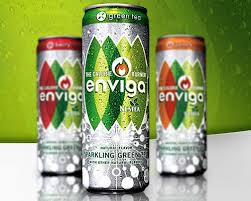[Archival: Originally published on my (discontinued) NutritionData.com Blog]
I’m writing to you from sunny Phoenix, where I’m attending the 5th Annual Nutrition and Health Conference, hosted by Dr. Andrew Weil and the Program in Integrative Medicine at the University of Arizona.
The sessions I’ve attended so far have been full of great, practical insights into how we can make our diets healthier. I can’t wait to to share this information with you in more detail! I only have a few minutes before the next session begins but wanted to dash off a quick post with some of the highlights so far.
In the opening session this morning, Dr. Weil set the stage for the rest of the conference with some general observations about diet and the role it plays in our long-term health. A few nuggets:
On fat: Low-fat diets (less than 20%) are not only unsatisfying and difficult to stick to, but they don’t appear to be necessary for good health. Dr. Weil argues (and I agree) that diet containing 30 to 40 percent of calories from fats is perfectly healthy. Of course, what kind of fats is important. Most of the fat in your diet should come from monounsaturated sources, such as extra virgin olive oil or canola oil.
At the same time, Dr. Weil points out that there’s no reason to be paranoid about saturated fat:
“You need to limit your intake of saturated fats but you don’t need to be afraid of them. Set a budget for your saturated fat consumption [I recommend 10% of calories–MR] and then decide how you want to spend it. If you love butter or ice cream, spend your saturated fat budget on those foods. Personally, I love cheese, so that’s what I choose to spend my saturated fat calories on.”
On protein: We’ve been trained to think in terms of “good” and “bad” carbs and fats but we tend to think of proteins as all “good” calories. The problem with protein foods, says Dr. Weil, is what often comes along with them. Conventionally-raised livestock may contain antibiotics, hormones, pesticide residues; fish may contain mercury, PCBs, and other contaminants.
Most of us could get along on a lot less protein than we are currently eating. Dr. Weil recommends getting 10 to 20% of your calories from protein– and much of it from vegetarian sources. Those with diminished kidney function may want to eat an even lower-protein diet to save wear and tear on the kideys:
“One thing I see in traditional medicine is that we wait too long before we tell people with kidney disease to start restricting protein. We wait until they are in kidney failure. If we started them on a low-protein diet ten years earlier, at the first signs of declining kidney function, we could probably avoid or at least delay the onset of kidney failure.”
On essential fatty acids and balance: With all the emphasis on getting more omega-3 fatty acids, we’ve started to think of omega-6 fatty acids as “bad” nutrients. Dr. Weil reminds us that omega-6 fatty acids are essential for good health! The problem is one of balance.
“The body is designed to function in a state of dynamic tension–between forces that push and forces that pull. We need to support both forces in equal measure to remain healthy.”
And consider this: The amount of omega-3 you need to consume to keep your body in balance is directly related to the amount of omega-6 in your diet, Weil points out.
“It takes very little fish oil to balance the blood chemistry of someone eating a diet that is very low in omega-6 fatty acids. But for most Westerners, who consume a huge amount of omega-6 in their diets, it takes an enormous amount of fish oil to accomplish the same goal.”
There was so much more to report, but I’m out of time for the moment. I’ll post updates throughout the conference and will also post in greater detail on some of the more interesting research after I get home. Wish you were here!

